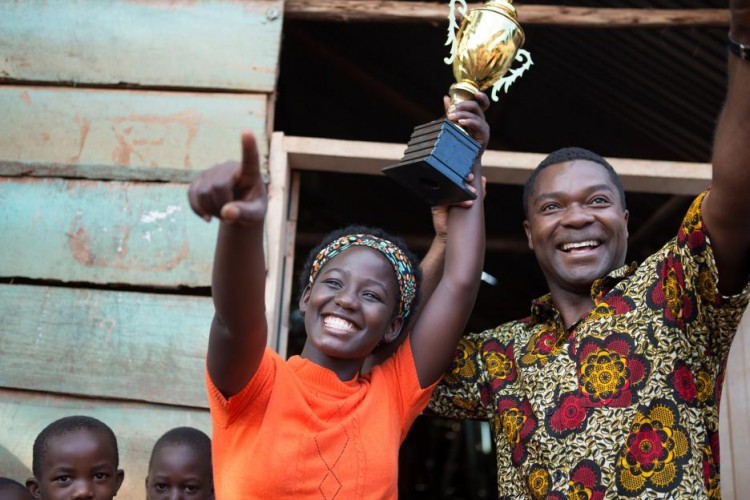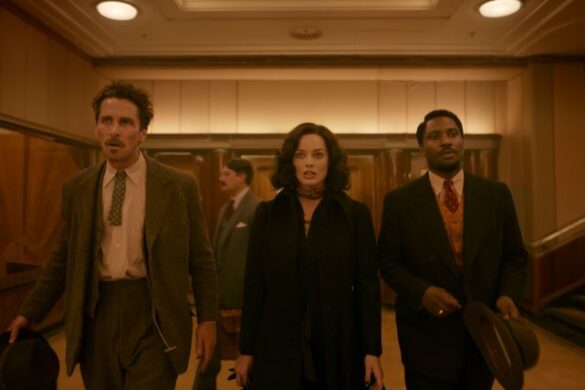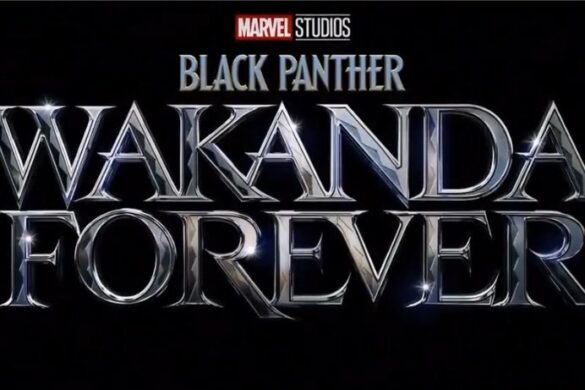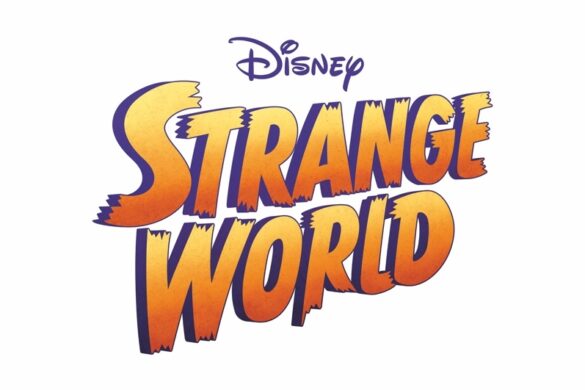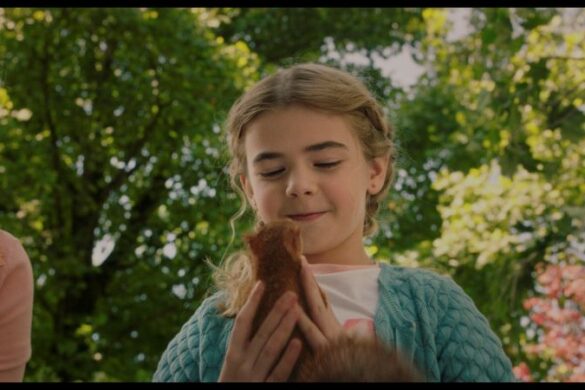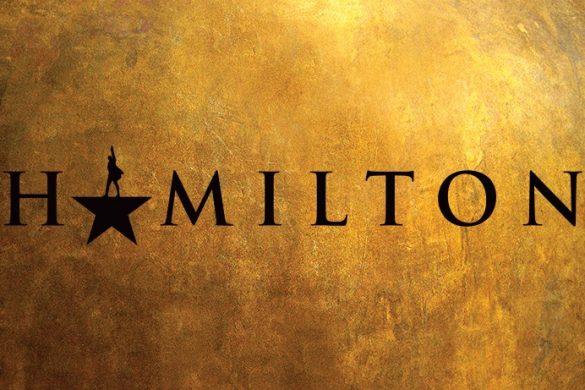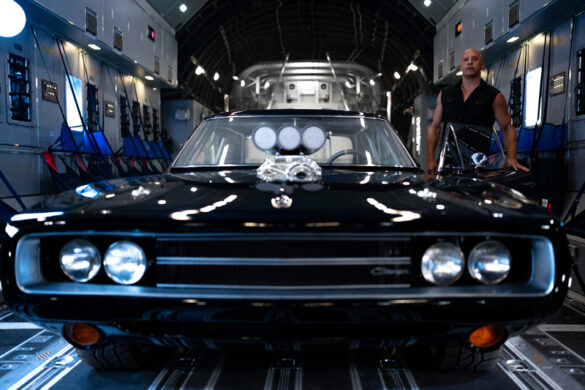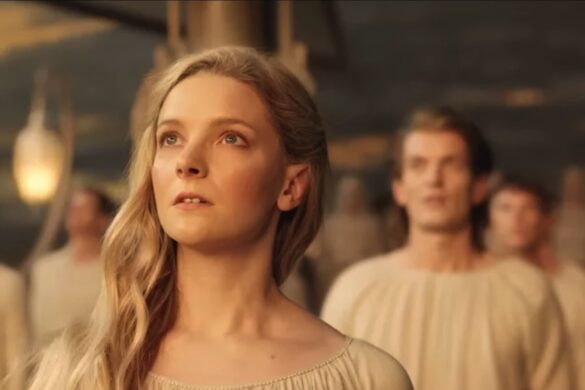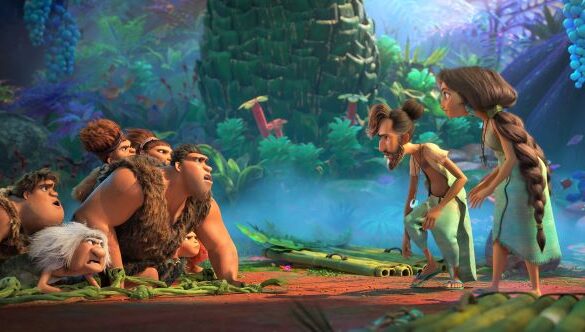Queen of Katwe, the inspirational story of chess prodigy Phiona Mutesi, is in theaters nationwide Friday, September 30. I’ve watched it three times, and fall in love with it over and over again. Phiona’s life changes when she meets chess coach Robert Katende. He introduces Phiona to chess, and it changes her life, and the lives of her family and village.
Mira Nair, the film’s Director, shared with us the challenges she faced in telling this beautifully enlightening story – How was it meeting Phiona and her mom for the first time? What does this film mean for the people of the village of Kawte? It was a motivating and exciting conversation with a talented woman who tells a great story.
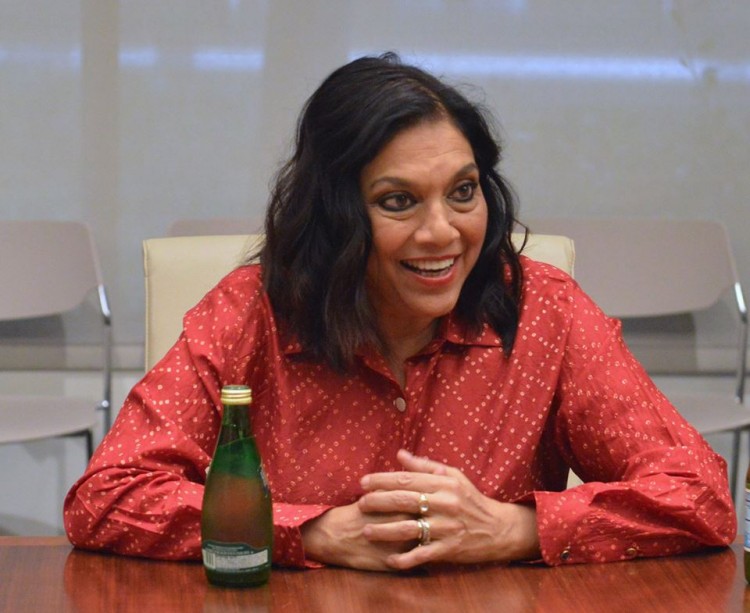
How you got involved in this project?
I’ve been living in Kampala now for 27 years, ever since I made Mississippi Masala there in 1989. I fell in love, had a son, planted gardens and created a film school called Maisha. The slogan for Maisha is “If we don’t tell our own stories, no one else will.” There are so few images of Africa on any screen anywhere – when there are, it’s death, despair, dictators, bestiality. So, we created the school because we have to make the dignity and the joy of everyday life in our streets in Kampala. Be local. Be truthful. And be excellent.
Were you familiar with Phiona and her story before making the film?
It was such irony that despite my being surrounded by local stories for 12 years — we had 680 alumni students, and have several directors we have created from East Africa. That this story of Phiona Mutesi, who lived 15 minutes from my home — I did not know about her.
A young man named Tendo Nagenda, a Ugandan and VP at Disney, came to see me in my garden in Kampala when he was at a family reunion about four years ago. He showed me this little article about Phiona in the ESPN journal. It was about this child who sold corn in Katwe, who now was heading to becoming a chess prodigy and going to the Olympics in Russia. I was completely struck by the story, and I said I’d love to meet Phiona. Funnily enough, I met her in New York City where Phiona was playing chess. I met her there with Robert Katende, and we had such a lovely connection instantly, because we are Ugandan and we were joking, slanging and everything.
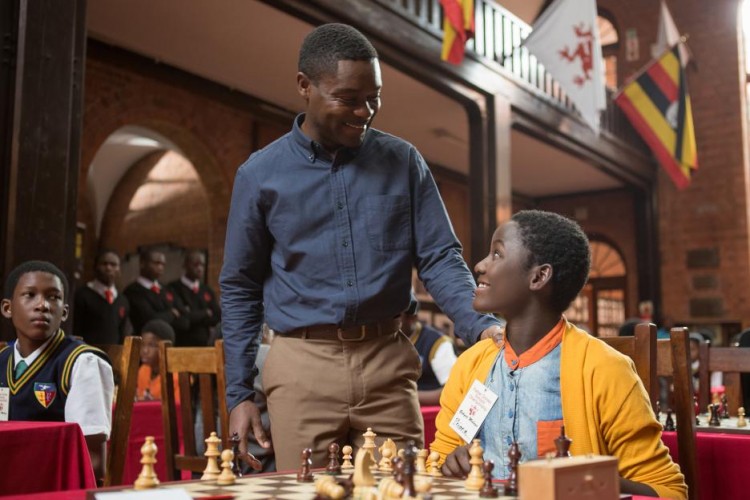
Family and community are such strong elements of this film. Did you spend any time with Harriet, Phiona’s mom?
I spent a lot of time with Harriet. She took me to the place where she was evicted when her husband died. We spent the day just going from one place to another – where she had been with her four kids, at an abandoned church, the veranda of a little vendor stand, a shop somewhere, and finally a little room. When I saw the trajectory of the struggle, the homelessness, and her fierceness to keep her family together against absolutely every odds – it just was so deeply moving. She is full of courage and full of pragmatism. She was not a defeated woman, by any means.
What challenges did you face in your journey to tell Phiona’s story?
The most beautiful challenge was to distill the love and familiarity I have with my own home, my adopted home of Uganda, the people, the sassiness, the vibrancy, and the style of it all. Another great challenge was to capture that sense of what we call in Kampala slang “lifist.” It means someone who embraces life fully, and doesn’t complain about what they don’t have. If you have half an inch of water, you will wash your hair, and no one will know that you had a struggle.
This is an attitude I live around, and this is the quality that I hoped to capture on film. And, of course, Phiona, in her real remarkably and utterly true story, gives us so much of that. The other element I really wanted to capture is that one cannot do it alone. You have to have the fire in you, but it takes a village. It takes a teacher to see your talent. It takes a mother to shepherd you, whether it is a right shepherding or not. She wants to protect her children from disappointment. Phiona proves to her mother quietly and steadily, that it is possible with a her teacher, her community, her street, her family, it is possible to achieve what you dream. This is the beauty of life there. That is what I wanted to achieve. It’s not just one girl’s story, but what I call the prismatic story, the story of the whole street, the story of the family, the story of the mother and the complexity of every character.
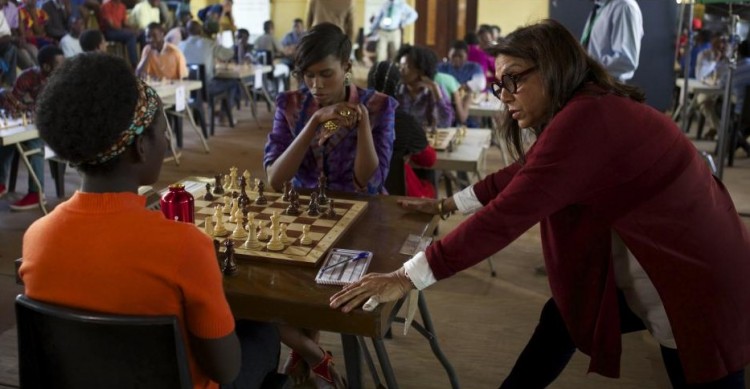
What was it like filming chess?
It’s really a challenge to film chess, because it’s a highly intellectual game. It’s about strategizing and making moves. How can I as a visual filmmaker, as a visualist, make chess interesting? The games were truthful. They were real games, real moves that Phiona made her own. It wasn’t a made-up situation. So, Sean Bobbitt, our cinematographer, and myself really looked at every game as a unique visual challenge. We filmed every game differently from the next. That was a challenge, because there’s only so many things you can do with the chess board. But how can you create chess so that it can be emotional, dramatic, and propulsive, to propel the story forward. And yet not bore you to death, and be satisfying for chess aficionados.
The casting in this movie really made an impression on the audience. How did the film get cast?
If you know my work from Salaam Bombay, the first film on street kids in Bombay, to Monsoon Wedding to Namesake – I always work with non-actors, people who have never faced the camera before. This is opposite of the film legends, like Denzel Washington and in this case Lupita and David. That kind of alchemy between the sort of purity and lack of artifice, of a child actor, of a child really, not even an actor, opposite a legend who has a lot of tricks to their trade. All those tricks have to drop off when you’re faced with the purity and freshness of a kid, especially a kid who comes from the same streets as the story that you’re filming. So, for me it was always critical that we don’t go too far afield to find our children. All our kids came from Katwe or Chibuli, which is the neighboring community right cross the street from Katwe. All our kids have come from there, do live there today.
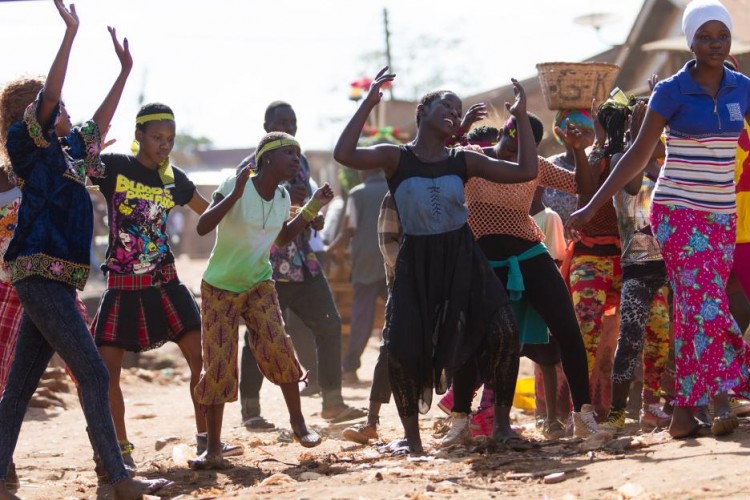
For Phiona I saw 700 girls in the six months prior to shooting. Most were in Uganda but also in Kampala, Kenya and England, but I was sure that we would find her in Uganda. It was tough, because this is the role that carries the whole film. One girl plays the Kenyan champion. She was a finalist to play Phiona, but to be honest, I was not in love. And I only trust love. I trust my instinct. I have to love you, because I have to live with the decision forever. My very close friend, Dinaz Stafford, was the casting director, and my son was her associate. He led her through the streets of Chibuli, like Katwe, to a little dance company where young kids learn traditional dancing and perform in hotels on Sunday nights. They went to a rehearsal and they filmed Madina. They came home and said they had another possible Phionafor me. I just kind of rolled my eyes and thought, oh, my God, seven hundred and one girls. Then they showed me the film, and she was magnetic. But I still put her through the ringer for like three weeks of testing, and learning to play chess.
How has the shooting of the film impacted the people of Katwe and Kampala?
We have been doing several things. One is we ran a green set, an ecological set, which is unheard of there, because plastic is so awful. We turned everything into a recycled sort of heaven. We also worked with the community of Katwe. We called it the Legacy Project while we were shooting, which is all shot in Katwe and the real places anyway to ask what the community needed.
And it was decided with the elders of the community that toilets, public toilets were the big thing. So, we have a project with Disney, to create a whole series of public toilets in Katwe, just a small example. But then recently they had just purchased, a building in Katwe to house permanently the Chess Academy, which has just gone through. And then we have an educational fund for all the pioneers in the film, to attend University. And that’s a very complicated and very excellent endeavor, because, like in the film, like in life, education is the cornerstone. And in Kampala, it’s a big emphasis. People knock on your door every day for school fees, because whatever it is you must go to school. So, the education of our kids is vital. And lastly in our film school, Maisha, which is now become a community interdisciplinary school for the community, we are building the last phase of the physical school, hopefully with Disney’s help, which creates an open-air community theater and audio visual library. I mean there are no libraries. There are no books. There’s certainly no visual situation. So that is what I’m seeking. Because it is impossible for us to have made this film and not care about what happens in the future, because the whole film is as much as it is about the present, as it is about the future of our kids.
I attended an all expense paid trip courtesy of Disney and ABC. Opinions are my own. Top photo of Mira taken by Allmommywants.com. Other images provided by Disney.

